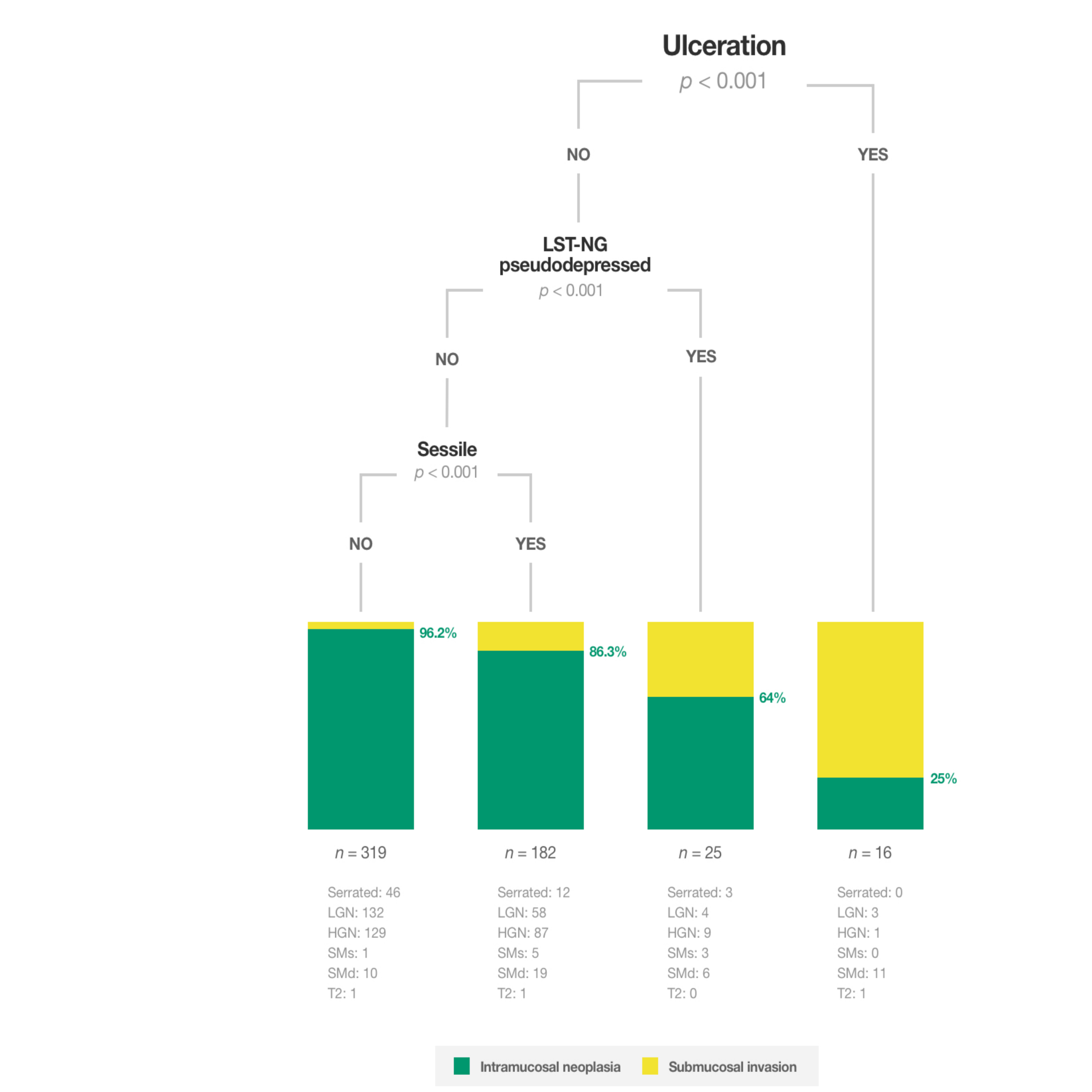The GOES research group has led the study Compound Endoscopic Morphological Features for Identifying Non-Pedunculated Lesions ≥20 mm with Intramucosal Neoplasia published in the journal Cancers. This is an international reference publication in which 17 Spanish hospitals participated, including the Hospital Clínic in Barcelona and the Hospital Gregorio Marañón in Madrid.
This study identifies the best treatment for colorectal polyps based on the predictions that can be made using an advanced endoscopic technique. For the treatment of these polyps, which are precursor lesions of colorectal cancer, the specialists had three options: piecemeal extraction of the lesion via endoscopic route, in which case the pathological analysis is not always conclusive; endoscopic one-piece lesion removal, a complex technique with a risk of complications; or surgery. The study, published today, identifies the best treatment after predicting the outcome of the histological analysis. This prediction is made possible by chromoendoscopy, an advanced endoscopic technique. This is a light filter that highlights the pattern of the surface of the polyp’s vessels, allowing a much better assessment of the lesion and, therefore, a greater chance of determining whether or not it is degenerate. In this way, the lesions are assessed more safely and the most appropriate treatment is determined in each case, avoiding more aggressive interventions when they are unnecessary, or applying more complex techniques when required.

The study also identifies the uncertain cases that can benefit from a more accurate endoscopic optical diagnosis with magnification, a zoom that increases the image resolution. The Althaia Digestology Service is one of the pioneering hospitals in Spain in using magnification to decide on the most appropriate treatment for colorectal polyps. The article’s lead author is Dr João Da Costa, research digestologist in the Gastrointestinal Oncology, Endoscopy and Surgery (GOES) research group, who carried out this study in his time at Althaia. The research project was led by Dr Ignasi Puig, assistant at the Althaia Digestology Service and coordinator of GOES. Also engaged in the project were Dr Marco Antonio Álvarez, head of the Althaia Digestology Service and a widely recognized researcher in the field of colorectal polyps and endoscopy, and Dr Òria Rosiñol, from the Althaia Pathology Service, who carried out the centralized histological evaluation of the samples.
